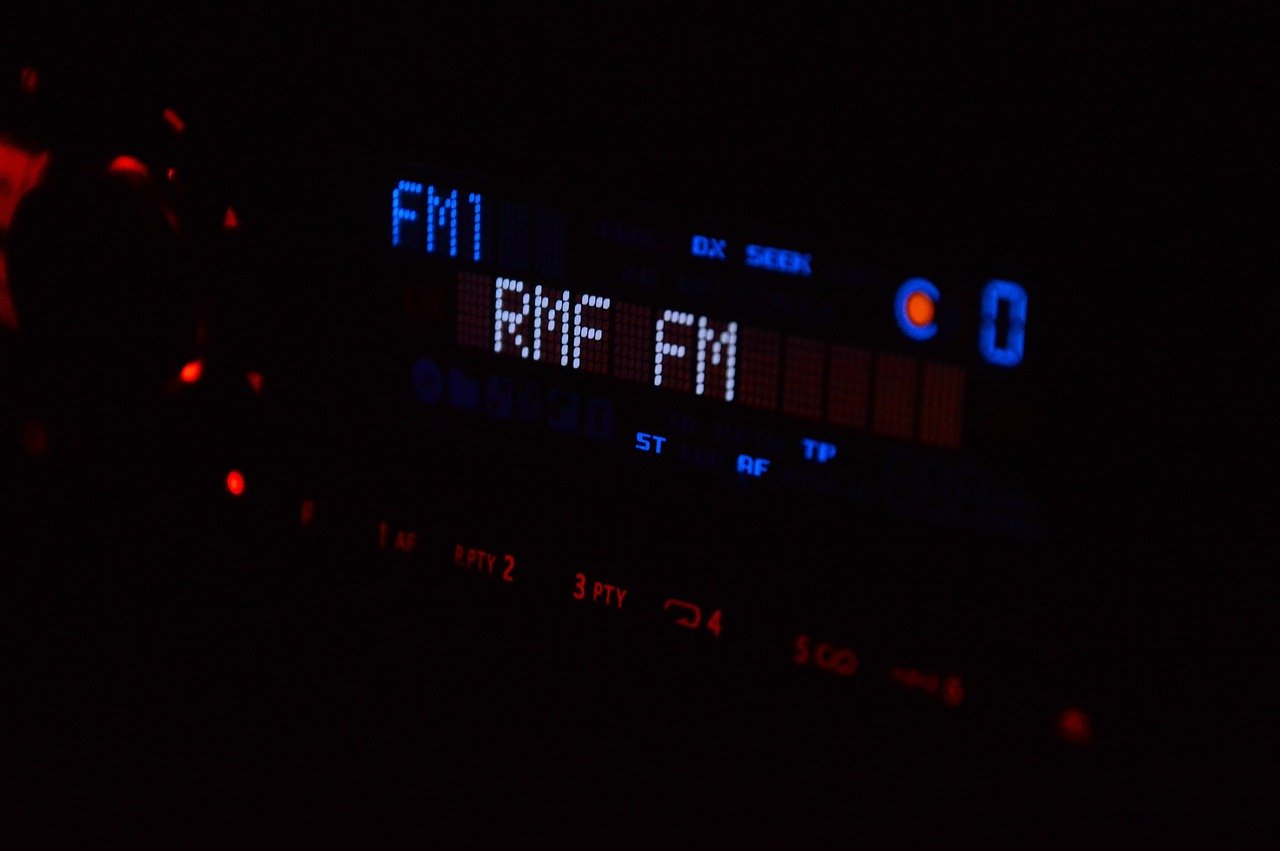how do radio stations make money?
Introduction
Radio as a mass media has been with us for over a century and even as we have been introduced into other types of media, the radio still holds an important place. In this case, many things take place on the radio, whether it is local radio shows, national talk shows, or music stations to keep the radio on watch. But how do these radio stations generate their revenue?

Problem
Today there is tough competition from streaming services such as Spotify and Apple Music, or even the growing popularity of podcasting platforms. These applications allow listening to the content at any time and provide an ad-free experience, which is attractive to many listeners. As the world turns to digital streaming, radio stations have to look for ways of making profits.
The new generation is interested in more individual content and does not spend much time listening to the traditional radio. This poses a significant problem to radio stations, especially since most of them depend on traditional forms of advertising revenues. There have been numerous opportunities for radio stations to seek new ways of sustaining themselves even though the world is rapidly moving to the digital era.
Agitation
According to eMarketer, the United States radio ad spend was at $9.6 billion in 2021. 6 billion, reducing dramatically from the records recorded just a few years before. As increasingly more people are locked down during and after COVID-19, people are listening to on-demand media, thus reducing much more the listenership of the radio stations.
Stations can engage with their communities in real time, offering a level of connection that on-demand platforms often struggle with. The pressure to find new revenue streams is immense. If otherwise, such businesses experience low returns, risks of redundancies to employees, and, in some extreme cases, the shutting down of operations.

iHeartRadio was declared bankrupt in 2018 following huge debts, where most of the debts stemmed from reduced ad revenues. If they were to survive, they had to look for forms of generating income. This scenario isn’t unique to iHeartRadio. Many smaller, independent radio stations have struggled with the same issue. The shift in consumer behavior is an existential crisis for many in the radio industry.
Solution
Despite these challenges, radio stations have developed a variety of methods to generate revenue. Let’s break these down and analyze how radio stations can make money today.
Advertising
Advertising is without a doubt the primary revenue source for most radio stations. The model is simple: companies pay radio stations to run ads during commercial breaks. Nevertheless, this source of revenue tends to hide more than meets the eye in terms of its mechanisms of operation.
The Cost Per Thousand Impressions (CPM) model is the most frequently applied model in radio advertising. The media in this case, the radio stations, work under a system where they offer their services to the advertisers at a certain rate per listener the station targets.
If a particular station has many people listening to it, they can ask for more money to place their ads. It could cost anything from $10 to $50 per 1000 listeners if you’re advertising on a local station instead of a national station where you can effectively pay more. To increase its revenues from ads, the stations seek to reach audiences with desirable characteristics.

Case Study
KIIS-FM enjoys the support of millions of listeners, particularly in the young generation. They can use this audience to attract brands such as McDonald’s, Nike, and Coca-Cola, among others. This means that by placing advertisements with an audience in mind, KIIS-FM can sell its advertising space at high prices about the amount of money the company makes from this stream, which is millions of dollars annually.
Sponsorships
Most radio stations derive their maximum revenue from sponsorship. This includes having a specific company commit itself to sponsoring a particular show, segment, or even the radio station as a whole. When compared with conventional advertising, media sponsorships are generally considered to be more targeted and holistic in their appeal to brands.
A morning radio show can have a portion called “The Traffic Update,” and what do you know? The dealership is advertised several times in the course of the broadcast while the radio station earns a constant stream of revenue from the sponsorship.
Case Study
There is a highly-rated morning show on New York’s WWPR-FM known as the Breakfast Club, which offers in-depth interviews with celebrities and inspiring commentaries on trends in society. The show has gotten many sponsorships from advertising companies. These sponsorship deals help the station earn additional revenue beyond traditional ad slots.
Events and Promotions
Some of the typical activities include the initiation of occasions and the promotion of different sorts of commercial selling for the sake of profit-making. Such functions can start with generally organized concerts or music festivals and can also include town halls and fundraising events. The radio stations either ask for fees from the attendees or give sponsorships to companies interested in the station’s target market.
Popular rock stations might have an annual summer music show that draws not only big bands but also multitudes of fans. The station earns its income from ticket sales, selling of wear and accessories, and advertising within the stations. Advertisers can buy the right of the chance to air ads during the event.
Case Study
WGN Radio in Chicago every year has the “Walk of Fame,” through which they honor legends in the radio industry. The event not only captures local consumers but also gets sponsorship from companies that wish to be affiliated with local heroes. Event sponsorships, ticket sales, and broadcasting rights are the primary sources of revenue for most of the stations.

Digital Advertising and Streaming
Most of the traditional radio stations have started diversifying to the new world of digital advertising and streaming to lag. Currently, most radio stations provide internet streaming to their stations by way of their website and mobile application and there are many ways this can be commercialized.
They can have digital ads before, during, or after their online station broadcasts, just like in radio. They can also use pre-roll ads display ads on their website or they can also adopt a brand to embed their content into their streams.
Case Study
After iHeartMedia declared bankruptcy, the business reemerged as the cross between traditional radio and new-age streaming services. It now has an application through which individuals can listen to live radio and stream podcasts and playlists. iHeartMedia makes money from ads during the live streaming of programs, mobile app banners, and pay subscriptions, among others.
Subscription Models
Certain stations have now introduced paid subscriptions in which many services are available without advertisements interrupting the user’s listening pleasure or introducing the listeners to only a selection of shows, interviews, etc. This has practical analogs with streaming services, which manage to produce ad-supported free content along with paid subscriptions.
Case Study
Sirius XM has clients subscribe to the company and in return, it offers commercial-free music, talk shows, and sports for a monthly fee. They also give special programs that are not accessible to everyone in society, such as Howard Stern’s show.

Content Syndication
The process of syndicating content enables radio stations to be able to cover other markets and make profits from different areas. The last form of bargaining power of buyers is content syndication, whereby the rights of a certain show or segment are sold to other stations. This means that a particular radio personality or even program may be aired nationwide instead of being aired regionally only.
Popular morning shows may also air in New York only but also in Los Angeles Miami and probably Chicago. The station that is under the production of the show earns its profit from the money it makes from the syndication, while other stations that air the show also enjoy having a good hit station.
Case Study
The nonpolitical Dave Ramsey Show offers financial advice and is hosted and syndicated across more than 600 stations in the U.S. Due to its popularity, the show can afford to charge for syndication rights, thus generating the network more revenues and sharing the brand across different markets.
The Future of Radio Revenue
The radio industry is however quite robust and even though the stations are faced with some challenges, they are striving to operate profitability. For instance, through the sale of advertisement space, streaming online, staging shows, and developing the culture of subscription, radio stations will remain relevant.
Moving to digital platforms seems to be the future; some things can still be done in radio that cannot be done on any other platform, especially in engaging the local market. In the years to come, this industry can still prosper through the utilization of smart strategies.

FAQs
How do radio stations make money?
The main source of income for the radio stations tends to be through sales of used airtime for advertising and sponsorship.
Can radio stations earn from listener donations?
Yes, some non-commercial stations generate revenue through listener donations and fundraising.
Do radio stations make money from syndicated content?
Yes, syndicating popular shows or content to other stations can be a significant revenue stream.
In what ways can online radio stations make their revenue?
There are always several ways through which online radio stations generate their revenues and this includes advertisement revenues, subscription fees, and business affiliations.
Do radio stations earn from music royalties?
Yes, they get royalties to play music but they earn their money in other ways, most often through advertisements.
Conclusion
There is still enough room in the media space for radio to be present regardless of whether it is an independent station of a small city or a network company with national coverage. The only thing tangible here is to take the hit and move on, look for opportunities to create, and make the best out of the opportunities that are present in the market.
Therefore, despite the numerous problems that radio stations experience with ad revenue in the digital age, it can be stated that radio is not going to disappear any time soon because the industry has always been good at adapting to changes and finding innovative ways of generating income.

